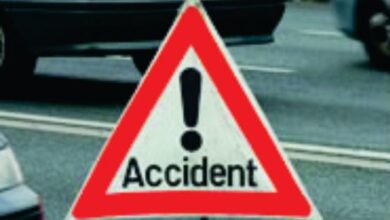Haryana has increased attempts to combat the mafia, but the Yamunanagar tragedy highlights how difficult the job is
A worker in construction, Jagmal (49), used to get cheap booze from Saran village in Yamunanagar on a regular basis. He reported feeling queasy on November 8 of last year, but he took some medicine on his own and went to work. He drank whiskey from the same source twice on the same day. In the evening of November 9, he was pronounced dead at Yamunanagar’s Civil Hospital.

When his son Mohit Kumar learned that his village’s Anil Kumar had also passed on that day from alcohol use, he filed a formal complaint and listed the villagers his father had previously purchased alcohol from.
Jagmal was the family’s only source of income. “I’m a college student. We have only been compensated with Rs 3 lakh. In order to support the family, I work part-time jobs,” Mohit explains.
Residents of Muzaffarnagar Shivam Sharma (age 25) and Deepak Singh (age 27) were also among the fatalities. “They had traveled to Ambala to work for a liquor businessman named Ankit, who also gave them lodging,” Raghu Nandan Sharma, Shivam’s father, said in a police report. Shivam and Deepak were employed at the illicit liquor plant located in Ambala’s Dhanaura hamlet. They must have drank the alcohol believing it to be safe.
We most likely didn’t get any compensation since we are from Uttar Pradesh. According to Yogender Sharma, Shivam’s uncle, who is also pursuing the case against the illicit liquor mafia in Ambala, Shivam’s father only own two bigha of land.
The illicit operation was operating out of an abandoned structure that was concealed from view and situated among sugarcane fields. During a search on the apartment on November 9, police found 2,700 empty plastic bottles, a machine to make whiskey, six fake liquor bottles with labels reading “Malta,” 14 plastic drums, a Fevicol drum, and stickers with the same name.
Reports of fatalities from fake liquor began to trickle in from other Yamunanagar villages in the following days. Five people survived, while twenty perished. The Haryana Police made 36 arrests and filed five FIRs. Based on inquiries, it was discovered that Ankit bought 2,000 litres of extra neutral alcohol (ENA) from Anshul Garg, the owner of a Karnal sanitizer business. While in prison in Kurukshetra, he is said to have worked with mobster Shamsher Singh, also known as Monu Rana, to devise a strategy for running the unit. It is claimed that methanol was added in excess of what was allowed and became deadly.
In 2021, Ankit was again detained for operating a shady liquor business in Saha, Ambala.
The Dhanaura site was rented in October, and production got underway in November. The stickers that said “Malta” were purchased from Delhi. The bottles were purchased from Himachal, while Chandigarh provided the colors and essence. The illegal alcohol traveled from Dhanaura to the villages of Yamunanagar, where it was sold by “khurdas,” or unlicensed dealers. Their price per bottle was Rs 140, which was less expensive than authorized domestic liquor. In three transactions, 105, 43, and 79 boxes were provided in total. Afterwards, 117 boxes were given out by “khurdas.” 110 boxes were also burned after reports of deaths were made.
Cases involving real liquor and government duty theft are known as litt liquor cases. Situations involving the production of alcohol without a license and without quality control are known as illicit liquor cases. If false, it may result in death.
In order to address issues with illicit liquor sales, power theft, canal water theft, and unlawful mining, the state government issued a notice in March of last year to establish the Haryana State Enforcement Bureau (HSEnB).
With the Lok Sabha elections fast approaching, HSEnB is concentrating on illegal alcohol. It has started statewide campaigns, including 22 units and over 500 police officers. 87 persons have been detained and 92 FIRs have been filed about illegal liquor, according to Additional Director General of Police (ADGP) AS Chawla, the head of HSEnB. “In cases of illicit liquor and smuggling, 1,935 FIRs have been registered and 1,801 people have been arrested between January 1 and March 26.” 31,574 English liquor bottles, 1.38 lakh domestic liquor bottles, 66,611 illegal liquor liters, 12,203 lahan liters, and 8,085 beer bottles have all been recovered.
“The public can call our helplines, 9729900030 and 9416465862, to report any instances of illicit liquor being sold or manufactured,” adds ADGP Chawla.
2,193 samples from retail vending machines throughout the state were collected between June 12 and November 7 of last year. Excise and Taxation Commissioner Ashok Kumar Meena said, “After November 7, a total of 2,875 samples were taken until the end of the month, but none was found unfit for human consumption.” Additionally, he disputes rumors that any authorized vendor would sell the fake alcohol that killed so many people in Yamunanagar. “Everything happened through ‘khurdas,'” he asserts.
According to Meena, a track and trace system based on QR codes has been introduced, which makes it easier to monitor the movement of bottles. It will also assist in determining the authenticity of the booze.
Every distillery and bottling factory in the state has CCTV installed, and the head office has an integrated control room. According to Meena, cameras are required in the offices of wholesale licensees as well as at vends. He said that the transit slip will be used to track trucks carrying alcohol into the state.
The action conducted against 27 police officers in 14 examples of permits and passes being issued while the vending machines were stopped due to the Covid-19 lockout in 2020 serves as a barometer for the determination to investigate anomalies. Fifteen inspectors and eight assistant excise and taxation officers received chargesheets from the excise and taxation department. But as the Yamunanagar tragedy demonstrates, the work demands constant attention.







